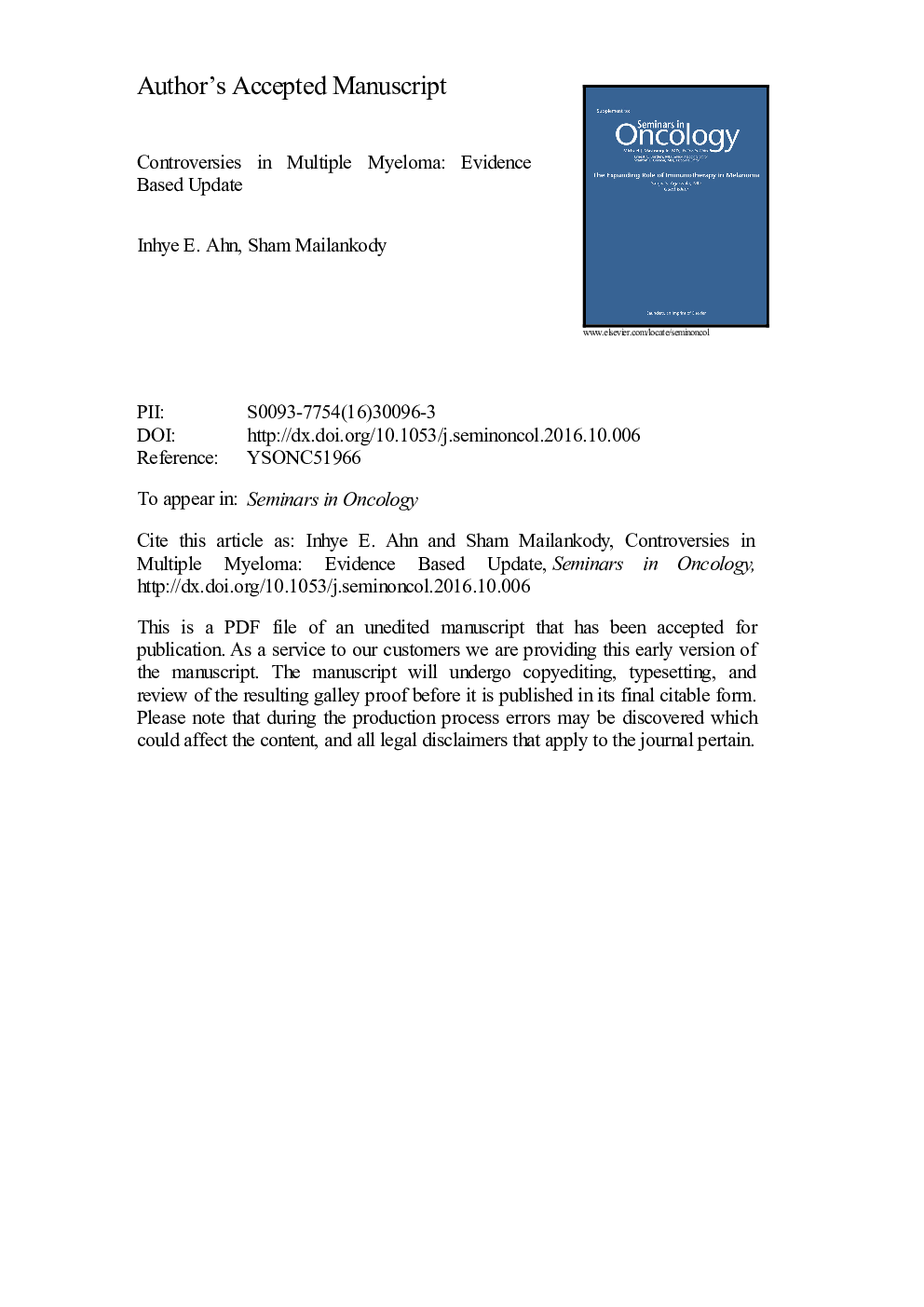| Article ID | Journal | Published Year | Pages | File Type |
|---|---|---|---|---|
| 5530274 | Seminars in Oncology | 2016 | 36 Pages |
Abstract
The US Food and Drug Administration (FDA) approved 10 new drugs for the treatment of multiple myeloma (MM) over the last two decades. The influx of new anti-myeloma agents with high efficacy and acceptable tolerability add complexity to the clinical decision-making process. First, treatment of smoldering multiple myeloma (SMM) remains investigational to date, although a randomized trial showed a survival gain in high-risk patients receiving lenalidomide. Second, in newly diagnosed MM, the majority of contemporary induction regimens have been studied in single-arm trials or compared to an older regimen, which complicates evidence-based treatment selection. Third, the role of consolidation chemotherapy followed by autologous stem cell transplant (ASCT) needs to be revisited in the context of highly effective agents, as newer regimens- such as carfilzomib, lenalidomide, and dexamethasone-are able to achieve extremely deep responses equivalent to or exceeding those seen after conventional induction and ASCT. Fourth, risks and benefits of maintenance therapy should also be redefined and individualized, as long-term survival and safety data accumulate. Here we selected four clinical settings where controversies exist, reviewed evidences behind conflicting treatment strategies, and asked myeloma experts to discuss evidence-based recommendations.
Keywords
Related Topics
Life Sciences
Biochemistry, Genetics and Molecular Biology
Cancer Research
Authors
Inhye E. Ahn, Sham Mailankody,
